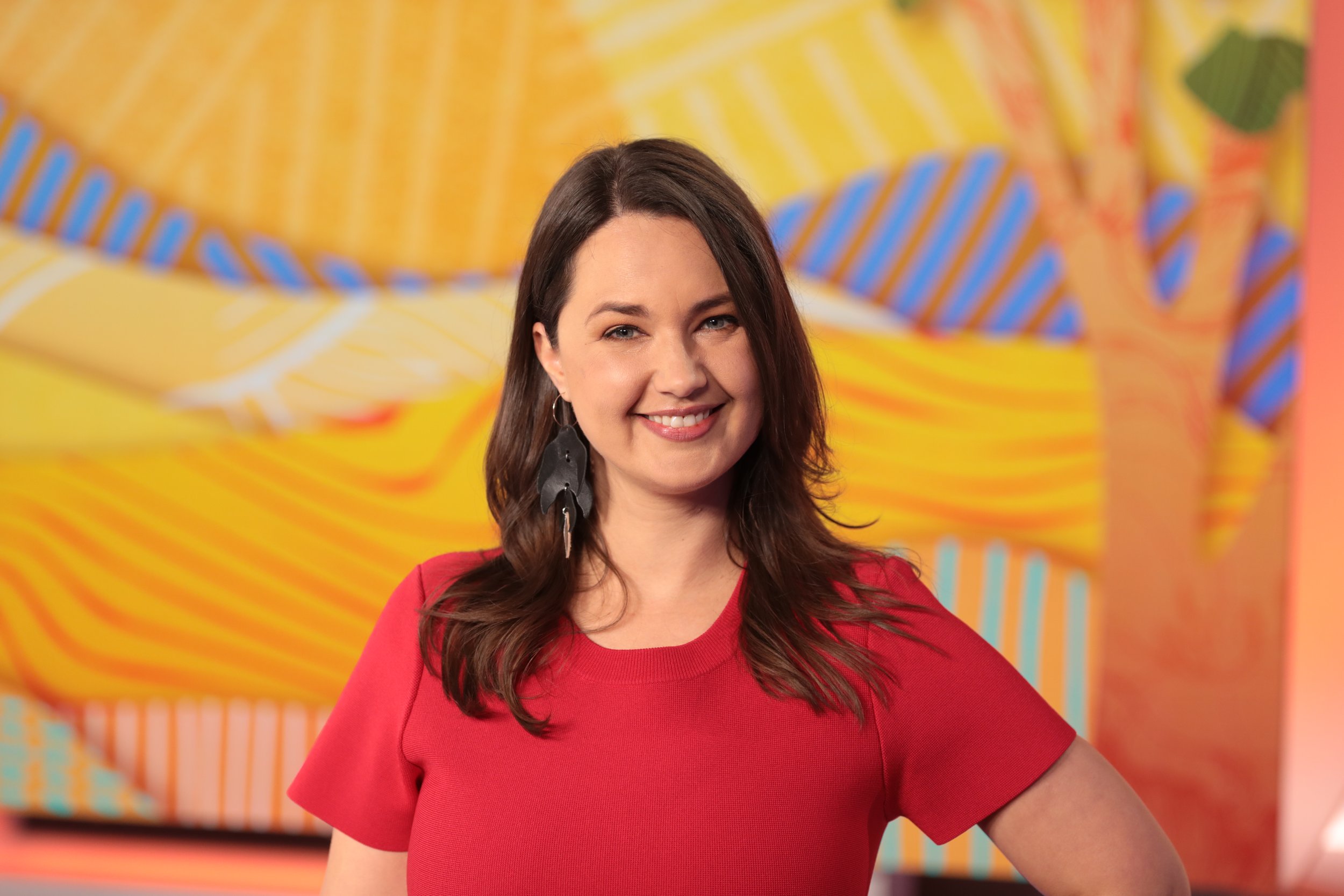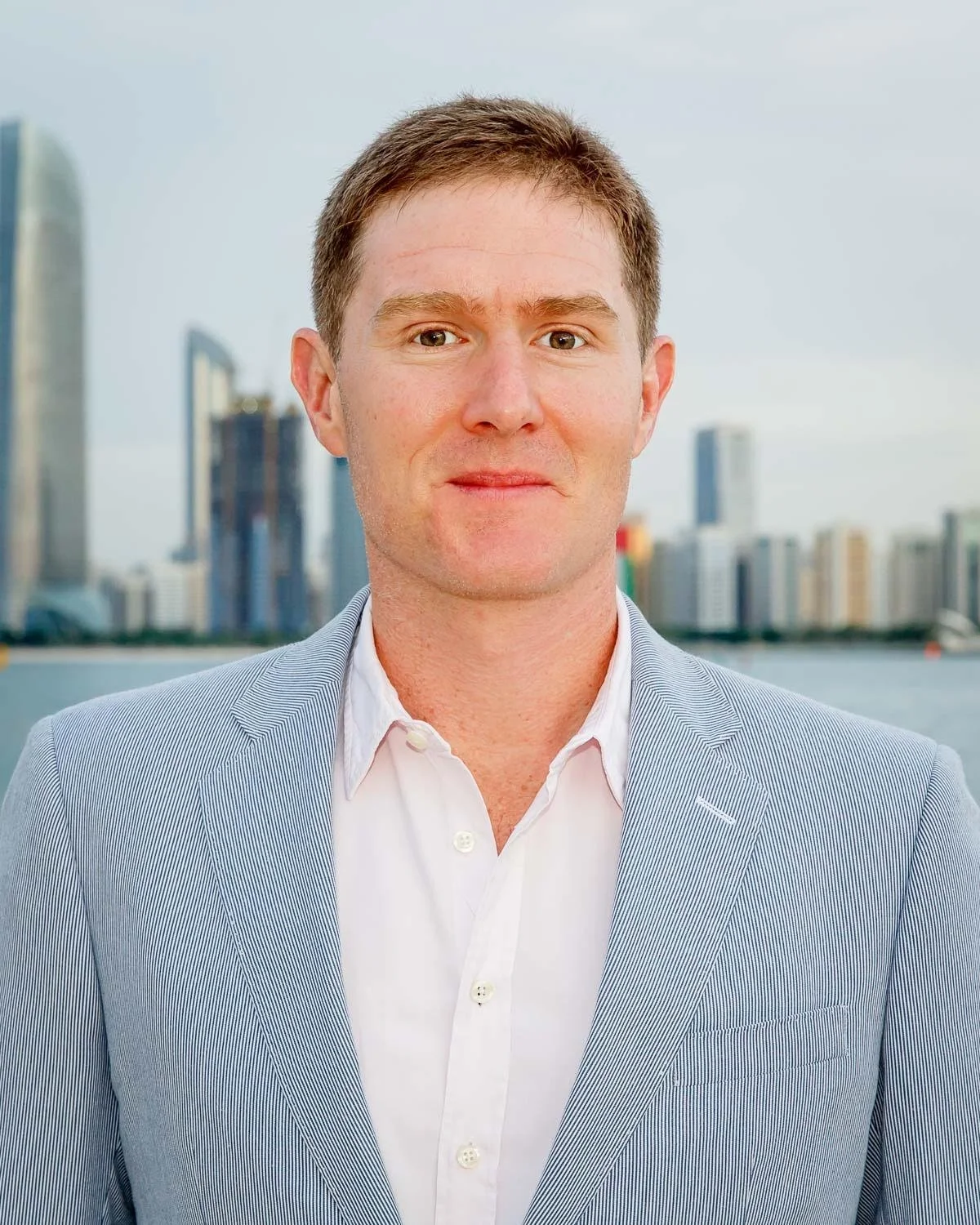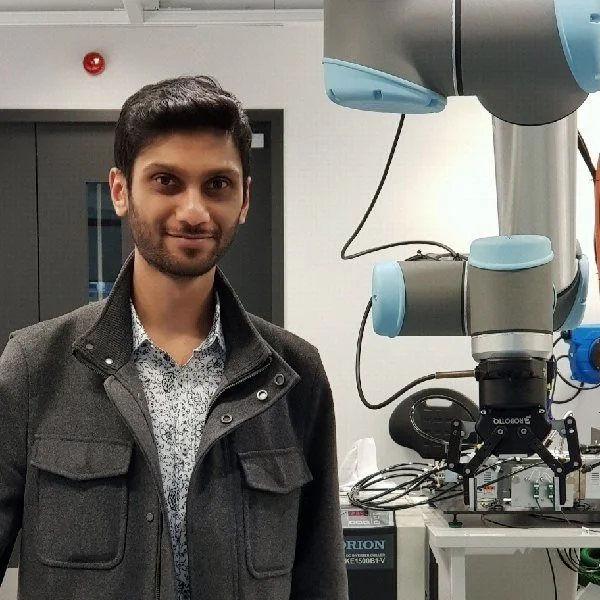
Circular Futures Forum
Speakers 2025
2025 Circular Futures Forum Expert Speakers
Lisa McLean is a seasoned leader in circular economy and zero-carbon business transformation, with 14 years of experience advising industry and governments on policy frameworks and regulations to drive market change. Her work spans the energy, water, waste, and mobility sectors across both the UK and Australia.
As CEO of Circular Australia, Lisa leads the organization in advocating for circular economy principles, prosumer rights, and innovative local utility and mobility precincts. She is also the founder and former leader of the Open Cities Alliance, and played a pivotal role in establishing the Australian Solar Thermal Association (AUSTELA), while working with key players in electric mobility and sustainable water utilities, including Flow Systems.
Sandeep Kirpalani is a Senior Lecturer at the University of New South Wales (UNSW) and the Academic Lead for the Workforce Education and Critical Skills Program under the Trailblazer for Recycling and Clean Energy (TRaCE) initiative.
With a focus on the sustainable growth of Australia's recycling and clean energy sectors, Sandeep develops and delivers a range of educational programs, including undergraduate and postgraduate courses, as well as short courses and micro-credentials. His work is dedicated to skilling, reskilling, and upskilling the workforce to meet the evolving demands of the RaCE sector in Australia.
Rae Johnston is a Wiradyuri and Greek woman who was born and raised on Darug & Gundungurra Country in the Blue Mountains of NSW.
A multi-award-winning journalist with a focus on the geekier side of life, Rae is the radio host of ABC Radio National’s Download This Show, ABC Radio Sydney’s Sunday Mornings (broadcasting state-wide) and iHeartRadio’s Weird Tech podcast.
She also travels the country as a TV host on NITV’s Going Places with Ernie Dingo, ABC’s Back Roads and SBS’ The Secret DNA Of Us. Rae is currently serving on the boards of both the Telstra Foundation and Swinburne University of Technology.
Olympia Yarger is the founder and CEO of Goterra, an agritech company transforming food waste into high-value protein and fertiliser using black soldier fly larvae and robotic systems. Goterra’s approach reduces greenhouse gas emissions by 97% compared to landfill, processing waste from businesses across Canberra, including Parliament House.
In 2023, Olympia was named ACT Australian of the Year for her groundbreaking work in sustainable waste conversion. Through Goterra’s "Maggot Robot" system, she has prevented over one million tonnes of emissions. Her innovative approach to circular economy solutions continues to drive a more sustainable future.
Cameron is a compelling thought leader, equipped with a diverse skill set honed through extensive work and travel across the globe. Fluent in five languages, and renowned for her personable approach, she excels in building relationships that pave the way for transformative outcomes.
With a Masters in Environment from the University of Melbourne and a Bachelor's in International Relations & Economics from Tufts University, Cameron’s academic background compliments her corporate experience in asset management, communications, non-profit, clean energy investment, and energy to deliver transformative solutions for clients.
As a Circular Economy Specialist at Coreo, Cameron drives innovation in projects, methodologies, and organisational capabilities through systems-based analysis, networked governance, and circular projects with compounding benefits. She works across all key economic sectors, but has specialisation in mining and metals and the built environment.
Anna is a respected sustainability expert and passionate champion of waste innovation, with a career focused on advancing the circular economy. She currently serves as the Engagement Manager at BlockTexx, a global leader in textile resource recovery and recycling technologies.
With a strong background in waste management and sustainable systems, Anna has also played a key role in nurturing circular and entrepreneurial business communities. She was instrumental in co-founding Boomerang Labs, Australia’s first accelerator for circular economy start-ups, and went on to establish and lead TerraCycle’s presence in Australia and New Zealand as its founding General Manager.
Anna holds a Bachelor of Arts and Laws (BA LLB) from the University of New South Wales and a Graduate Diploma in Environmental Law from the University of Sydney.
Anthony Karam, CEO, embarked on his journey in 2017 after witnessing the vast e-waste landfill dumps in Africa and encountering emerging, yet largely untested, technologies aimed at addressing complex challenges. These experiences sparked a deep passion and led him to investigate the global issue of e-waste.
Shocked by what he discovered, Anthony gathered a dedicated team to explore how they could do better. Together, they began asking critical questions: What would it take? What would it look like? How could it be done? And ultimately, why not?
Their mission became clear — to think outside the circle and drive meaningful change.
Megan Jones is an award-winning businesswoman and one of Australia’s Top 100 Green Energy Players. As CEO and Co-Founder of the Circular PV Alliance (CPVA), she is driving the solar industry’s shift toward a circular economy — creating solutions that deliver long-term environmental and commercial value.
With a background in industry reform, strategic partnerships, and stakeholder engagement, Megan is known for turning big ideas into real-world impact. Her leadership is guided by the values of Legacy, Impact, and Benefit, and fuelled by a deep belief in innovation and collaboration.
A passionate advocate for systems change, Megan brings energy, insight, and authenticity to every stage — inspiring audiences to imagine what's possible and take action toward a more sustainable future.
Ricky Puata is the Deputy Director of Regional Economic Development at the NSW Department of Primary Industries and Regional Development. With over three years in the department and a strong focus on Western NSW, Ricky leads a team of economic development professionals dedicated to building strong, resilient regional economies.
His work involves close collaboration with businesses, industry, local councils, and government agencies to identify opportunities, support economic diversification, and enable sustainable growth across the region. Ricky's team also drives initiatives in industry development, workforce, and skills – helping position regional NSW for future success.
Most recently, Ricky has been leading efforts in energy and economic transition in areas such as Lithgow and the Mid-Western Region, supporting the NSW Government’s broader Net Zero objectives and ensuring local communities are positioned to thrive through change.
Ricky is also a member of the RDA Central West Board, where he contributes his expertise to broader regional development strategies and initiatives.
Simon has an extensive background in natural capital & nature markets with experience developing Savanna Burning, Soils, Human Induced Regeneration and Environmental Planting carbon abatement projects across Australia, and deep domain knowledge of the NSW Biodiversity market, having been a regulator with the NSW Government during the scheme’s formative years.
Simon established Renovo Ag early in 2025 in partnership with Dr Grant Tranter (soil scientist), in order to better support Australian land managers access nature markets and fulfil a gap in the market for carbon services delivered with increased transparency.
Pete Morrison is the Director of Green Timber Technologies (GTT), a company committed to transforming the construction industry with sustainable, offsite building solutions. A proud local of Orange, NSW, Pete brings extensive experience in Design for Manufacture and Assembly (DFMA) from the UK and Schools Infrastructure NSW. His focus is on driving innovation and accelerating the adoption of circular economy principles to reduce waste and environmental impact.
Under Pete's leadership, GTT leverages cutting-edge technology, digital design, and automated manufacturing to create efficient, high-quality, and sustainable buildings. With a strong commitment to sustainability, Pete is dedicated to advancing GTT’s mission of delivering smarter, environmentally friendly construction solutions that align with a circular economy.
As the CEO of RELA since its inception in 2020, Michael has pioneered the development and launch of the world’s first renewable energy land marketplace. With 20 years of experience as an entrepreneur, academic, and investor, he has collaborated with partners including sovereign wealth funds, universities and the full spectrum of Australian food producers. Michael’s expertise lies in fostering deep collaboration and finding win-win outcomes amongst diverse stakeholders.
Michael also had a 17 year semi professional football (soccer) career spanning four continents, and he and his wife have five children so although he is not a food producer himself, he is doing his bit to bolster domestic demand.
Andrew leads the Regional Circularity Cooperative, a not-for-profit organisation established by Bega Group to support the Bega Valley’s transition to a circular economy. With a background in dairy and beef farming, Andrew brings more than 25 years of experience in land management and community development.
His career spans both operational and leadership roles across sustainable agriculture, natural resource management, biosecurity, animal health, and emergency management. Andrew’s deep connection to regional communities and practical expertise make him a strong advocate for place-based, regenerative solutions.
Cameron is a leader in circular-economy market design, currently shaping strategy at ReMade in Australia—a national initiative building trust in recycled content and unlocking demand at scale. His remit spans certification ecosystems, data and reporting architecture, and cross-sector partnerships, ensuring solutions remain verifiable, and investable.
As founder of ASPIRE, Cameron helped pioneer a digital marketplace that turns industrial by-products into inputs for new manufacturing. Now a Non-Executive Director at ASPIRE, he has stepped back from day-to-day operations to focus on national-level infrastructure, maintaining strong governance and clear boundaries between platforms and policy. The through-line: credible data, clear rules, and practical tools that help procurement teams buy better and help Australian manufacturers win with higher recycled content.
Cameron holds an MBA, a Master’s in Entrepreneurship & Innovation, and a Master’s in Construction. He has delivered keynotes for industry and policy audiences in Australia and abroad, including a guest address at the United Nations in Geneva in 2024. When not mapping mass-balance and chain-of-custody pathways, he’s known for translating complexity into plain English—and for the occasional terrible pun about landfill (best kept buried).
Valentina Petrone is a circular economy expert and sustainability educator, passionate about reducing the environmental impact of construction projects, co-designing sustainable cities, contributing to thriving communities, and championing others to do the same.
With a background in architecture and extensive experience in the design and construction industry across different parts of the world, Valentina has been instrumental in shaping policies that drive circular practices in urban development and have a keen focus on implementing sustainable and climate resilience practices.
The University of Sydney recently awarded her the title of Adjunct Associate Professor in recognition of technical excellence in integrating circular economy design strategies into every aspect of assets' design, construction and operations, achieving unprecedented results.
Dr. Grant Tranter is the founder and Director of Renovo Ag, a pioneering company established in early 2025. With a focus on asset sustainability, Dr. Tranter works to bridge the gap for Australian land managers seeking access to nature markets. In partnership with Simon Campbell, a leading expert in natural capital and nature markets, Renovo Ag provides carbon services with a commitment to increased transparency.
Dr. Tranter's leadership and vision are central to Renovo Ag's mission of supporting land managers in navigating the evolving landscape of sustainability and carbon markets.
Sophie is an experienced sustainability professional who is passionate about working with businesses to achieve environmental and social improvements and contribute towards a more sustainable world.
Sophie is currently the Head of Sustainability at Essential Energy, where she has been for the past 3 years. Her team is responsible for the Sustainability Strategy implementation and initiatives, delivery of sustainability and climate reporting and the community and social impact program. She leads programs to help the organisation reduce its environmental impact including emissions reduction plans and circular economy initiatives.
Prior to joining Essential Energy, Sophie worked in roles in the energy, insurance and financial sectors. Her corporate career has spanned over 10 years in communications-related roles and for the past 7 years she has specialised in sustainability. Sophie has a Bachelor of Business from the University of Technology Sydney and a certificate of Business Sustainability Management from Cambridge Institute of Sustainability Leadership.
Head of Culture & Community at Indigenous Energy Australia, Tommy Hicks is a Badimia and Narungga man, committed to driving generational change through culturally grounded infrastructure development.
His focus is to build genuine, trust-based relationships with industry, government, and communities, embedding community aspirations in projects and telling story to influence industry culture. Tommy’s work spans education, community services and food security, prioritising Aboriginal ways of knowing, being, and doing. With a vision of achieving 'Outcomes over Assets,' he believes the energy transition offers unprecedented opportunity to Close the Gap.
Berto Pandolfo is an industrial design academic and practitioner. His research spans the meaning and complexity associated with objects and how objects are made, the strategic value of design-led innovation for manufacturing SMEs, and the use of materials and processes towards a more sustainable object-making practice. He has a particular interest in local and small batch production and circular design.
Berto has contributed to numerous research-based, university-industry collaborations that have delivered high quality design solutions back into industry.
Azaria Dobson is the Executive Director of Project Interface and Strategic Coordination at Energy Co. She is responsible for bringing together EnergyCo's complex internal and external program and project interfaces to support delivery of the state’s renewable energy zones as part of the Net Zero Roadmap for NSW. She plays a critical role in ensuring seamless coordination across multiple stakeholders, sectors, and projects, advancing NSW’s renewable energy transition.
Azaria has over 15 years of experience in senior government roles focused on strategy, land use planning, and regional development. She has led the creation of regional plans for more than half of NSW, guiding the strategic direction for regional development and fostering economic resilience.
Chris Dart is an experienced environmental programs manager currently leading the Circular Economy program at the Hunter Joint Organisation. He works closely with councils, industry, and communities to drive practical sustainability outcomes across the Hunter region.
With a background in local government and consulting, Chris previously held roles at Lake Macquarie City Council and EnviroCom Australia, delivering environmental education and engagement initiatives throughout NSW.
He holds a Bachelor of Environment (Environmental Management) and a Bachelor of Laws from Macquarie University and is passionate about collaboration, innovation, and supporting regional communities in the transition to a more circular and resilient future.
Ed Nicholas is the Director of Parkes Energy Recovery, overseeing the development of a utility-scale energy from waste facility in Parkes, NSW, as part of the region’s planned Special Activation Precinct.
As CEO Development at Tribe Infrastructure, Australia’s leading developer of energy-from-waste, Ed brings expertise hard-won from shepherding these kinds of projects in East Rockingham, Western Australia, and in Gippsland, Victoria, sitting on the leading edge of Australia’s transition towards a circular economy and clean energy future.
Anirban Ghose brings a unique blend of expertise in mechatronics, nanoscience, and engineering to the challenge of building a more sustainable future. With extensive research and hands-on experience in recycling technologies, he has focused on creating new opportunities to transform waste materials into valuable, useable products.
As part of his work with the UNSW Smart Centre’s Microfactories, Anirban has been at the forefront of world-leading innovation in recycled material applications — advancing solutions with profound economic, environmental, and social benefits.
Recognised as Emerging Engineer of the Year 2023 (NSW) by Engineers Australia, Anirban is passionate about bridging the gap between research and commercialisation. Through his leadership at Polymaya, he champions the development of local manufacturing systems and circular economy solutions, driven by a deep commitment to sustainability and practical innovation.
Luke has worked for the last decade for Sustainability Victoria (SV), a statutory agency of the Victorian Government whose long-term purpose is to accelerate Victoria’s transition to a circular, climate resilient and clean economy. Luke’s professional experience has encompassed health and community services, clean energy and circular economy, and regional economic development and transition.
Luke currently leads the Regions Team at SV that works with regional communities in Victoria to identify and facilitate circular economy opportunities delivering localised value and worth across local government, business and industry, and the community sectors. This place-based approach seeks to support circular economy networks forming and collaborating to building understanding and awareness, recognising strengths and leadership, and support initiatives delivering benefits to regional economies.
































